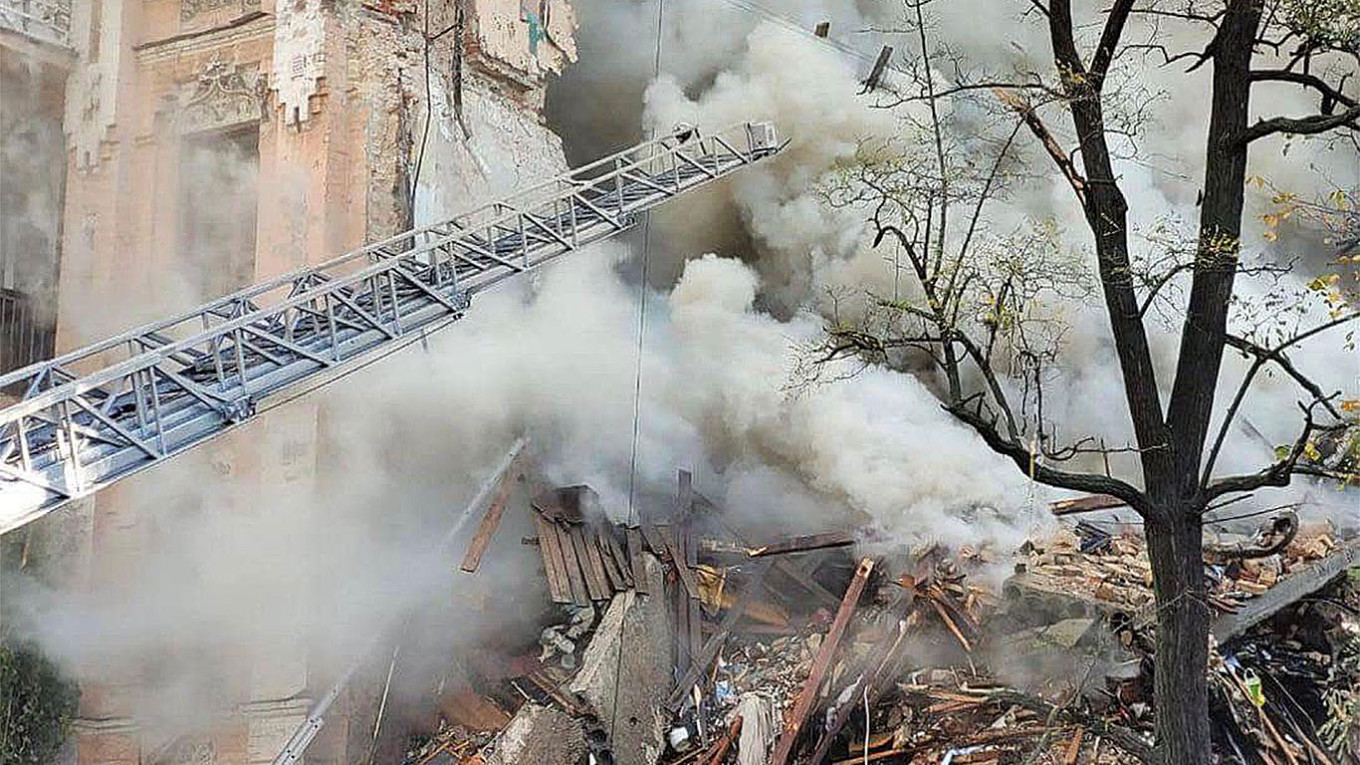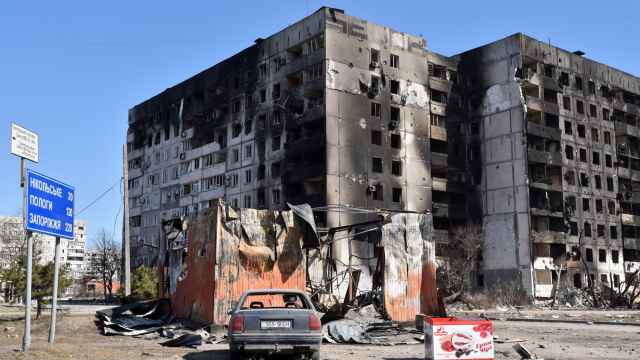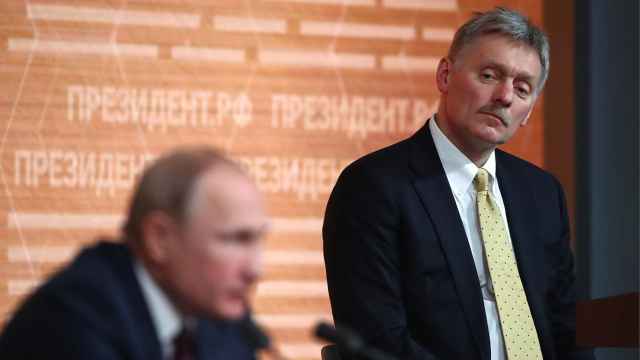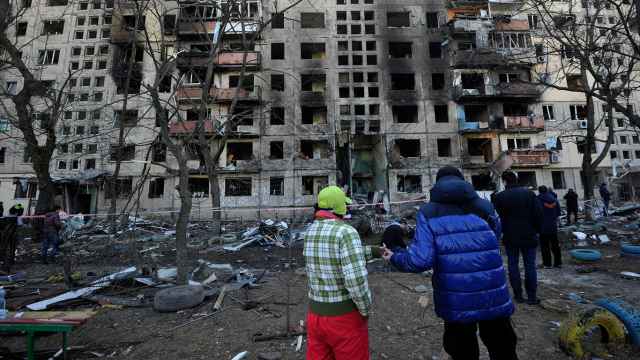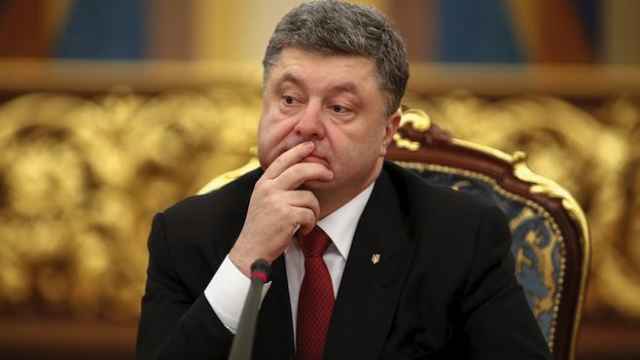Russia’s recent aerial bombardment of Kyiv and other Ukrainian cities is a response to several new and unforeseen problems that the Kremlin has found itself facing in recent weeks.
First and foremost was the mass withdrawal of Russian troops from the vicinity of Kharkiv and Lyman, which caught most Russian commentators unaware, regardless of their views on the war. Despite the mixed results of the first six months of the war, there was skepticism in Russia that Ukraine could really launch a counteroffensive.
Accordingly, Russia’s severe military setbacks in the Kharkiv and Kherson regions could not fail to cause dismay, and sparked a widespread desire to find a scapegoat, forcing the powers that be to engage with the public more than usual. This, in turn, had the effect of emboldening the public to be far more critical of the military campaign, which had until recently been widely considered to be nothing but victorious.
On top of this, it also became apparent that the Russian establishment had no plan in place for presenting a united front over the implementation of the partial mobilization announced by the Kremlin.
Although the public reaction to the announcement was calmer than many had predicted, criticism of the military top brass over its erratic implementation was so widespread that it threw into question the seemingly self-evident theory about people rallying around the regime at a time of war. Combined with the shock of Russia’s military losses, it created the impression that the Russian political class was losing the ability to demonstrate any unity on difficult issues.
Against the backdrop of the mobilization, the announcement of the annexation of four “new territories” from Ukraine failed to spark any public euphoria, and indeed went largely unnoticed for many reasons. For a start, in contrast with the key port and popular holiday destination of Crimea that Russia annexed back in 2014, there is no coherent image of the Donbas or Kherson region in Russian historical memory. In addition, the public part of the annexation process—the sham referendums—was not portrayed very successfully. It’s entirely possible that had the Kremlin announced the annexation after the explosion on the Kerch bridge connecting Russia and Crimea, it would have been seen as a more dynamic and successful move, and might have attracted more attention.
Finally, the explosion and damage it caused to the bridge, built at great expense by Russia and only completed in 2018, was an obvious source of stress, since it immediately seemed clear that Ukraine was behind the attack. It might seem that the sinking back in the spring of Russia’s Moskva warship—the Black Sea Fleet’s flagship—should have been a far more significant and dramatic event, yet, psychologically, it was borne more easily by Russian society, which took until the autumn to start to notice that the Ukrainians’ military capabilities are in fact more or less comparable to its mighty enemy’s.
The Russian leadership’s response to this turn of events was to launch a wave of deadly missile strikes across Ukrainian cities on Oct. 10–11, followed by drone attacks in Kyiv on Oct. 17. The attacks look like an attempt by the Russian establishment to convince itself and others that Russia still has enough determination, energy, and resources to regain the military initiative.
The aerial bombardment was supposed to prevent the growing concern in Russian society from turning into negative feelings toward the authorities. The Kremlin was trying to stop the nascent discord among the ranks of the most loyal sections of the population: women, residents of “deepest, darkest” Russia, and the domestic republics formed around Russia’s distinct ethnic groups. They had all, until now, been a crucial social pillar of the regime, but were less than enthusiastic about the announcement of the mobilization. The missile strikes were supposed to reposition Moscow’s actions in the eyes of these people as “defensive,” and aimed at ensuring the safety of Russia’s own people in response to the degrading actions of its enemy.
From a military viewpoint, the mass bombing of Ukraine on Oct. 10–11 enabled the Kremlin to increase the ambiguity surrounding Russia’s intentions. It was supposed to demonstrate Moscow’s determination, but was not accompanied by any explanation of what it was meant to achieve: was it planned as a defensive measure against the Ukrainian counterattack around Kherson? To prevent Russian troops from getting split up near Berdyansk or Melitopol? To freeze the status quo ahead of possible future talks? To drag out the conflict in the hope of beefing up the army following the retraining of the newly mobilized soldiers? Or to create an excuse for using a nuclear weapon?
The spontaneous bombardment also allowed Moscow to show that it was not simply doing nothing. Those who already believed in Russia’s military potential saw confirmation of the theory that Russia hadn’t even gotten started yet, while those who considered the explosion on the bridge to Crimea a blatant humiliation could see for themselves that the insult had not gone unpunished.
Yet simply taking action, however demonstratively, is no guarantee of being able to change the situation or solve existing problems. The military effectiveness of bombing Ukraine’s energy infrastructure is debatable. The difficulties in relations with other former Soviet neighbors have not been solved. The theory that the mobilization would boost the combat capabilities of Russia’s armed forces has yet to be proven.
Nor has the divide in Russian society that occurred in September been bridged. The apathetic majority is having to expend more and more energy in order not to notice what is happening but still balks at joining either the anti-war or radically pro-war minorities. There is no consensus on whether Russia has enough resources and energy to undertake further radical measures.
For now, therefore, the missile strikes don’t provide an answer to the main question: whether Moscow is prepared to regain the military initiative and start using methods that will yield more concrete results, or whether it is simply reacting to Kyiv’s actions, running the risk of falling into yet another trap.
A Message from The Moscow Times:
Dear readers,
We are facing unprecedented challenges. Russia's Prosecutor General's Office has designated The Moscow Times as an "undesirable" organization, criminalizing our work and putting our staff at risk of prosecution. This follows our earlier unjust labeling as a "foreign agent."
These actions are direct attempts to silence independent journalism in Russia. The authorities claim our work "discredits the decisions of the Russian leadership." We see things differently: we strive to provide accurate, unbiased reporting on Russia.
We, the journalists of The Moscow Times, refuse to be silenced. But to continue our work, we need your help.
Your support, no matter how small, makes a world of difference. If you can, please support us monthly starting from just $2. It's quick to set up, and every contribution makes a significant impact.
By supporting The Moscow Times, you're defending open, independent journalism in the face of repression. Thank you for standing with us.
Remind me later.



